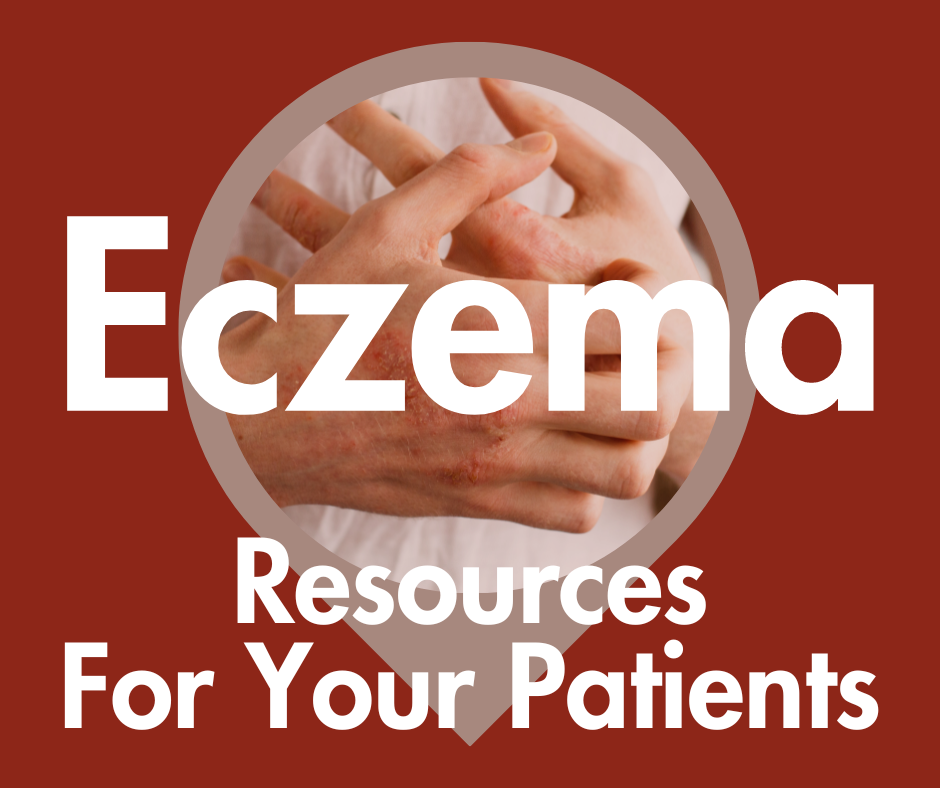- Acne
- Actinic Keratosis
- Aesthetics
- Alopecia
- Atopic Dermatitis
- Buy-and-Bill
- COVID-19
- Case-Based Roundtable
- Chronic Hand Eczema
- Chronic Spontaneous Urticaria
- Drug Watch
- Eczema
- General Dermatology
- Hidradenitis Suppurativa
- Melasma
- NP and PA
- Pediatric Dermatology
- Pigmentary Disorders
- Practice Management
- Precision Medicine and Biologics
- Prurigo Nodularis
- Psoriasis
- Psoriatic Arthritis
- Rare Disease
- Rosacea
- Skin Cancer
- Vitiligo
- Wound Care
Feature
Article
Considering Laundry Care and Skin Care During National Eczema Awareness Month
Lindsey Zubritsky, MD, FAAD, discusses the importance of providing accurate eczema care education throughout the month of October.
"I really appreciate that October is Eczema Awareness Month. It allows us to educate the general public about the condition and give those living with eczema hopefully, some new information and ways to best take care of their skin,” said Lindsey Zubritsky, MD, FAAD, in a recent interview with Dermatology Times. Zubritsky, a board-certified dermatologist at Premier Dermatology and Skin Cancer Center in Ocean Springs, Mississippi, discussed the importance of National Eczema Awareness Month and her best advice for other clinicians counseling patients.
One of Zubritsky’s top recommendations for managing eczema and flares is eliminating harsh perfumes or dyes found in laundry care. This National Eczema Awareness Month, Zubritsky is teaming up with All Free Clear laundry detergent, the first laundry brand to receive the seal of acceptance from the National Eczema Association. According to Zubritsky, it’s also important during laundry care for patients with eczema to wash their clothes in hot water to effectively remove seasonal allergies and to choose clothing fabrics that are more breathable such as cotton, bamboo, silk, and cashmere.
Transcript
Lindsey Zubritsky, MD, FAD: Hi, I'm Dr. Lindsey Zubritsky, a board-certified dermatologist.
Dermatology Times: How often do you treat patients with eczema in your practice and what is typically the most common type of eczema that you treat?
Zubritsky: Eczema is easily one of the top 3 most common conditions that I treat in the clinic. So I see patients every single day, patients of all ages, who come in with eczema. The most common condition of eczema that I treat is likely atopic dermatitis or allergic contact dermatitis. But I also see things like nummular dermatitis, asteatotic eczema, irritant contact dermatitis, so anything that falls under that eczema category, I see in the clinic.
Dermatology Times: As a clinician, what does National Eczema Awareness Month mean to you? How can fellow clinicians continue to bring more awareness to the condition?
Zubritsky: Actually, one in 10 Americans live with eczema, so it's so common, and it's often stigmatized. So, I really appreciate that October is Eczema Awareness Month. It allows us to educate the general public about the condition and give those living with eczema, hopefully some new information and ways to best take care of their skin. So as a clinician, and as a dermatologist, I also find it important to collaborate with other professionals and even brands who proactively bring awareness to the condition. So this month, I've actually teamed up with All Free Clear; it's the number one detergent brand recommended by dermatologists for sensitive skin. I've teamed up with them to shed more light on the condition and help to find ways to mitigate flare ups.
Dermatology Times: How do you counsel patients who may experience irritations and rashes due to clothing or laundry containing perfumes or dyes?
Zubritsky: Laundry care is skin care, which people don't often think about. Using a gentle detergent that is 100% free of dyes and perfumes such as All Free Clear should be a key step in our wellness regimen, especially for those with sensitive skin. I like to say if it touches your skin, wash it with a hypoallergenic detergent. Clothing, bedding, towels, and other items that touch your skin have the potential to cause irritation, if not washed with a gentle detergent. So as the first laundry brand to receive the seal of acceptance from the National Eczema Association, All Free Clear is my top recommended detergent for those with eczema. Some other tips that I have for people who are doing laundry are when you're washing it, make sure you're washing it in hot water. And that's really going to help to remove those seasonal allergens from clothes. Wash your clothes regularly. Wear loose-fitting clothes, and then make sure the fabrics that you're choosing are appropriate for your skin type. So, you want to avoid clothes that are made with polyester, wool, nylon, or other synthetic fabrics that could aggravate the skin and instead choose fabrics that are more breathable things like cotton, bamboo, silk, and cashmere.
Dermatology Times: What is your advice for counseling patients who then have stress-induced eczema and who are frustrated that there's not a physical trigger that they can manage?
Zubritsky: Stress-induced eczema, that's tough, but it's really important number one that you are doing gentle skin care you're giving your skin that love that it deserves. You're moisturizing every day, you're keeping your shower short and lukewarm, and you're drying your skin very gently. Other things that you can do to manage that stress are to focus on 8 hours of sleep, if you can get it, practice mindfulness, focus on exercise to try things like yoga, and meditation, all those things can help reduce stress, which can trigger your eczema.
Dermatology Times: How can parents and caregivers of pediatric patients best collaborate with dermatologists to create an effective treatment plan?
Zubritsky: The best thing you can do is first make an appointment with a board-certified dermatologist, it doesn't have to be a pediatric dermatologist, all dermatologists can handle pediatric eczema. One of the things you can do when you go to that appointment is write down what you're using and bringing in the products that you're using so we can go over those products with you and make sure you're using the right products for your skin type. I also recommend taking a diary, looking and seeing when your kids are having flares and seeing what could have potentially triggered that, and making a diary can help recognize those triggers. Another thing is listening to your dermatologist. So a lot of the time people come in, and they go home and they do something different. So really, really work with your dermatologist. Make sure when you leave the appointment you understand fully, that's the time to ask any of your questions that we can answer. And be consistent with that regimen that we give you as dermatologists. The more consistent you are, the better results you're going to see. And finally, just give yourself grace, having a child with eczema can be very difficult for both the caregiver and the parents. So really just do your best. You don't have to do it perfectly. But do whatever you can to avoid those triggers and to get that skin as healthy as possible.
Dermatology Times: Do you have any closing remarks regarding National Eczema Awareness Month?
Zubritsky: I think it's really important that we don't stigmatize eczema. It is so common, so many people have it. And I also want to reiterate that there are treatments that we can do to make your skin feel better. But there are just as many things that you can do at home to help relieve that eczema; Things you're coming into contact with, you can avoid things you use on your skin that can really make or break your eczema routine.
[Transcript edited for clarity]
Newsletter
Like what you’re reading? Subscribe to Dermatology Times for weekly updates on therapies, innovations, and real-world practice tips.





